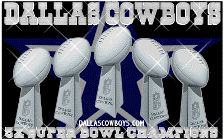No matter what anybody tells you, words and ideas can change the world.
The following are some thoughts and quotes with regard to Expository Preaching, some of which I typically share with preaching students at Southwestern Baptist Theological Seminary.
Here's a video clip from John Piper on the Power of Scripture and Doctrine to start us off. (HT Benji)
A couple of quick definitions/descriptions:
York (SBTS prof) & Decker, Preaching with Bold Assurance
"Expository preaching is defined not by a style nor by a particular methodology, but by the end result of explaining and applying the meaning of the text. Expository preaching is any kind of preaching that shows people the meaning of a biblical text and leads them to apply it to their lives."
Robinson, Biblical Preaching
"Expository preaching is the communication of a biblical concept derived from and transmitted through a historical, grammatical, and literary study of a passage in its context which the Holy Spirit first applies to the personality and experience of the preacher, then through the preacher, applies to his hearers."
Bryan Chapell, Christ-Centered Preaching
"Biblical preaching moves from doctrinal exposition to life instruction."
"A grammar lesson is not a sermon. A sermon is not a textual summary, a systematics discourse, or a history lecture. Mere lectures are pre-sermons because they dispense information without relevant application that focuses listeners on their obligations to Christ and his ministry to them." (which he credits to Jay Adams in Preaching with Purpose)
"present the Word; explain what it says; and exhort based on what it means. This is expository preaching."
J. I . Packer, "Why Preach?"
“The purpose of preaching is not to stir people to action while bypassing their minds, so that they never see what reason God gives them for doing what the preacher requires of them (that is manipulation); nor is the purpose to stock people’s minds with truth, no matter how vital and clear, which then lies fallow and does not become the seedbed and source of changed lives (that is academicism).”
Al Mohler, (See "Expository Preaching and the Recovery of Christian Worship," Part 1 - Part 2 - Part 3)
"Expository preaching is that mode of Christian preaching that takes as its central purpose the presentation and application of the text of the Bible. All other issues and concerns are subordinated to the central task of presenting the biblical text. As the word of God, the text of Scripture has the right to establish both the substance and the structure of the sermon. Genuine exposition takes place when the preacher sets forth the meaning and message of the biblical text and makes clear how the word of God establishes the identity and worldview of the church as the people of God."
"Expository preaching begins with the preacher's determination to present and explain the text of the Bible to his congregation. This simple starting point is a major issue of division in contemporary homiletics for many preachers assume that they must begin with a human problem or question and then work backward to the biblical text. On the contrary, expository preaching begins with the text and works from the text to apply its truth to the lives of believers. If this determination and commitment are not clear at the outset, something other than expository preaching will result."
"Authentic expository preaching is marked by three distinct marks or characteristics: authority, reverence, and centrality. Expository preaching is authoritative because it stands upon the very authority of the Bible as the word of God. Such preaching requires and reinforces a sense of reverent expectation on the part of God's people. Finally, expository preaching demands the central place in Christian worship and is respected as the event through which the living God speaks to his people."
John Stott, Between Two Worlds
"We should be praying that God will raise up a new generation of Christian communicators who are determined to bridge the chasm; who struggle to relate God’s unchanging Word to our ever-changing world; who refuse to sacrifice truth to relevance or relevance to truth; but who resolve instead in equal measure to be faithful to Scripture and pertinent to today."
"What did the original author intend his words to mean? That was the question. Moreover it is a question which can with patience be answered, and answered confidently…the biblical authors were honest men, not deceivers and their writings intended to be understood.”
Gunny's Sine qua non of Expository Preaching
"Expository preaching presents the intended meaning of the biblical author/Author in a manner that is relevant to the contemporary listener."
If our goal in all preaching (& teaching) is life change to the glory of God (and I can't see how it's not), then our listeners should leave knowing what the text meant in the original context, what the text means for the contemporary audience, and how the text should be applied in their little world. They should be motivated to that end through our exhortation and should be expected to do it (reliant on the Spirit, of course).






















